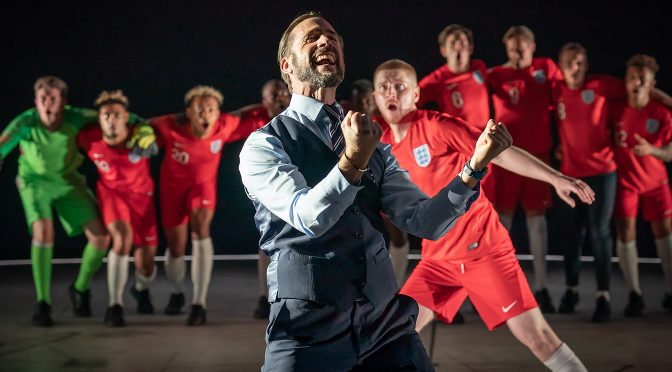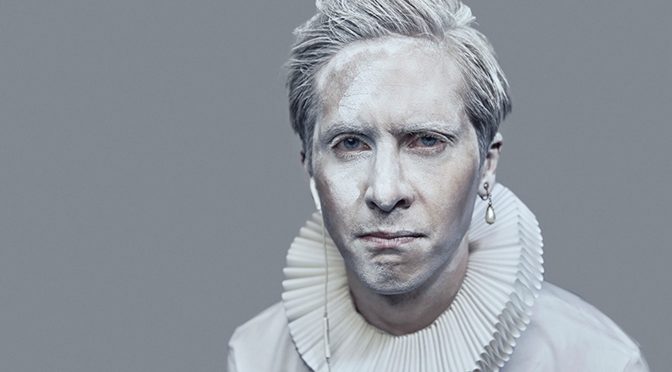Football is not my thing. But, like a lot of sports, the beautiful game (that’s what people who like it call it, don’t you know) makes good theatre. Director Rupert Goold’s production of James Graham’s new play has a lot of energy and brings out the drama on the field and behind the scenes. Even if sports psychology and penalty shootouts don’t excite you, they work well on stage.
Tracking the England team’s recent history, there’s a neat theatrical parallel as our hero, manager Gareth Southgate, talks of “storytelling”. Using a psychologist, Pippa Grange, and building team spirit has long-term aims to create a new narrative. The duo, by far the main protagonists, prove inspirational, with excellent performances from Joseph Fiennes and Gina McKee that make them easy to root for.
It seems that the team’s problem is expectation and what’s needed is “learning how to lose”. The reasoning is presented clearly and leads to moving moments. Time is spent over Southgate’s own personal trauma from missing a penalty. And emphasis on the players’ youth is smart. If issues of racism and sexism might be explored more, seeing the people behind the players is a sound move.
The football team parallels a theatrical ensemble and here close-knit performances of multiple roles are consistently strong. Such praise comes despite my not appreciating the show’s humour. Nearly every character is a famous face. If, like me, you don’t know them, the audience reaction is baffling. Let’s just report that the loose impersonations go down very well indeed. Will Close’s Harry Kane is a particular standout.
Graham is a political playwright and obviously wants his work to be about more than football. Beneath the team’s problem is the idea of English exceptionalism – thinking we will win despite evidence to the contrary. Hinting at a connection to wider political events does not always convince, and brief appearances from prime ministers seem wasted. But the wish to question what it is to be English, as you are about to represent England, seems sensible enough. Staging the play at the nation’s theatre is fitting.
Like Southgate it seems, Graham wants to raise questions. The play grows in power as a result. A letter by Southgate, which inspires the play’s title and is judiciously quoted, makes big claims – compassion and change are highlighted. The focus is on optimism (which makes a nice change nowadays). Goold’s expansive energy complements this perfectly. Despite not winning the World Cup, the play ends on sense of hope that is bigger than football. And that’s a great goal.
Until 11 August 2023
Photos by Marc Brenner


